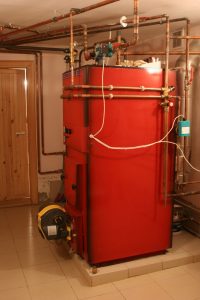 In general, we don’t recommend that you attempt to troubleshoot a boiler on your own, and certainly don’t believe the average homeowner should attempt to make repairs to a hot water boiler. This could be dangerous, and time-consuming when you don’t know what to look for. Technicians with the proper training can come to your home and make a quick assessment with all the tools they need to do so.
In general, we don’t recommend that you attempt to troubleshoot a boiler on your own, and certainly don’t believe the average homeowner should attempt to make repairs to a hot water boiler. This could be dangerous, and time-consuming when you don’t know what to look for. Technicians with the proper training can come to your home and make a quick assessment with all the tools they need to do so.
Still, it’s useful to know what can go wrong. That way, you know why it’s so important to take care of issues quickly and have a better idea of what to expect.
What You Can Fix on Your Own
There are a couple of things you should check before you call in a technician. If it doesn’t appear that your boiler is powering on at all, it’s always worth it to check the circuit breaker. Yes, even a gas system requires electric power. The pumps and motors won’t operate without it! You can also check to make sure that the gas valve is open.
It’s also worth checking that the thermostat is powered on and set to the proper temperature. One final thing to look at is whether the boiler is leaking water. If this is the case, act quickly to shut off the water and call in a technician.
When a Boiler Produces No Heat
If it’s not an issue with the thermostat or the circuit breaker box, there are many things that could be the source of a problem when a boiler will not heat.
- No Pilot Light – If you don’t know how to light this yourself, we recommend calling in a technician.
- Problematic Electronic Ignition – Modern systems actually use electronic ignition, rather than a standing pilot. This means you will not be able to light it yourself, and the ignition system could require replacement.
- Low Water Pressure – Pressure levels in the water tank should be maintained at about 12-15 psi. If it’s lower than 12 psi, the boiler may not operate.
When a Boiler Performs Poorly
Then, there’s the possibility that a boiler is not working properly. You may notice low heat or that heat is imbalanced from room to room. In this case, there are many possible components responsible, and this is by no means an exhaustive list.
- Mineral Deposits in the Boiler – Hard water is what happens when there is an excess of minerals in the water supply. Deposits can collect in the tank, changing pressure levels, and it may need to be flushed.
- Problems with the Expansion Tank – Water levels could become too high or too low in the expansion tank, which is meant to take in excess water to keep the water from boiling. (Despite the name, this is not actually supposed to happen.)
- Faulty Circulating Pump – The circulators move hot water throughout the radiators in the home, so a broken pump will mean a major issue.
Contact Max Sr & Paul Schoenwalder Plumbing, Heating and Air Conditioning, A Corp. and learn more about what could go wrong. We repair boilers in Union, NJ, and we’ve been in business since 1912.
